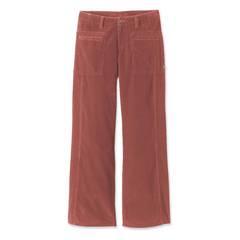The Zero Waste Lifestyle: Getting Started (The First Steps)
Posted on August 28, 2018 by
Everyone has the ability to slow down the decline of our planet. Many people don’t think they have what it takes or think it will cost them a lot of money of be too much of a hassle, but the reality is that it’s just not as hard as it seems.
If you have children, surely you want the planet to be habitable for them. It’s time to start making those little changes gradually. You don’t have to wake up one morning and instantly become zero waste because it just wouldn’t work like that. Rome wasn’t built in a day.
There are a few really simple changes you can make to become more eco/environmentally-friendly for you and your family.

No more plastic bags.
The idea of the zero-waste lifestyle is pretty explanatory. It means you will eventually be living a life in which you throw nothing away. This can be very tricky for those who already have a lot of stuff and can be very difficult for people in certain industries (artists, fashion designers, etc.) but for many people, it can be done.
The first thing you can do is ditch the plastic bags. Okay don’t just throw them away – that’s wasteful. Reuse your plastic bags until you simply cannot anymore and then purchase a replacement lifelong substitute such as a cotton bag. You can also consider making creative DIY bags according to your style, preference, and size.
When buying items, you can carry your containers and mesh bags to reduce the need for plastics. You can also educate yourself about the ecological impact of plastic bags and encourage your family and peers to adopt sustainable practices. Additionally, you can watch environmental documentaries, read conservation-themed books, and explore sustainable living websites. These sites can give you an insight into how dedicated eco-enthusiasts like Sophie Kovic goes plastic free to build a brighter and greener future. Furthermore, you get to learn various sustainable approaches you can incorporate in daily life to promote a healthier planet.
Look at your waste
In the first week take a look at your trash and separate it into compartments. The chances are that you’ll find a lot of it is compostable and more is recyclable, meaning you can reduce the amount by nearly 2 thirds. If you notice any trends in the things you’re throwing away the most, let’s target those first.
Freecycle
If you notice that a lot of what you’re throwing away could be useful to someone else, join a site such as Freecycle and list your items on there instead. You could also try reselling them on marketplaces such as eBay or at car boot sales.
You can also find things you need on these sites, meaning you can help other people reduce waste that goes to landfill too; win win!
Shop no waste
One thing that creates a lot of waste is containers and packaging. To begin with you can help reduce the amount of plastic you use by heading down to shops that sell their fruits and vegetables without packaging. You can use refill containers to buy grains and pulses etc. and just swap things out where you can.
It is not expected for you to be able to do this instantly. It takes time to learn the best places to shop and what suits you best.
Taking small steps towards going waste free can actually be fun. I bought my boyfriend a straight razor from Get Razor Advice so that he no longer had to use disposable razors and he loved it! The plastic free alternatives in life don’t necessarily have to make your life more difficult!
Shops such as Objects of Use sell items that are built to last. They also avoid plastic in all of their products. This means they last a really long time and then don’t harm the environment when you no longer need them anymore. Materials such as wood are great because they are what is called a renewable source of energy.
Are you ready to take the plunge into a zero waste lifestyle? By reading this post you have initiated your interest and that is enough for now. Remember you can take small steps at a time and gradually become as low-impact as you wish to be.

